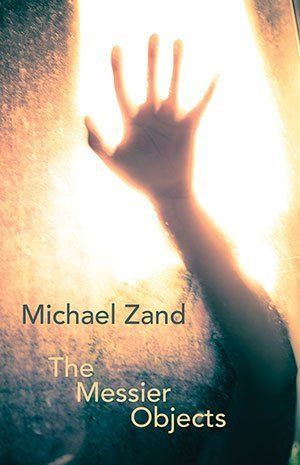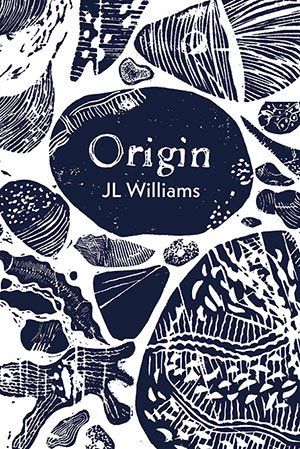Harriet Tarlo Gathering Grounds, 2011-2018
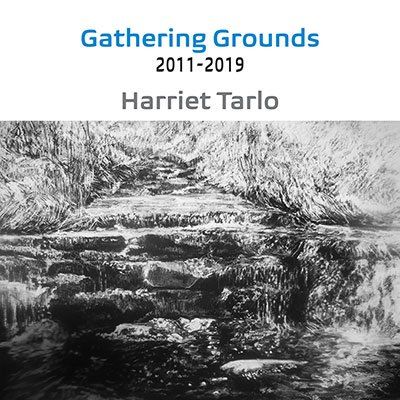
Harriet Tarlo Field
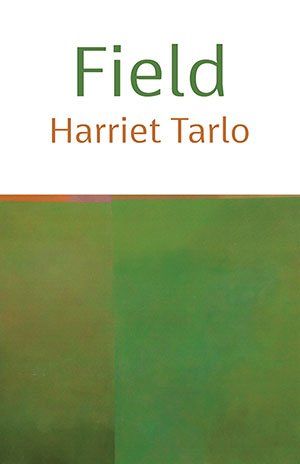
Harriet Tarlo Poems 2004-2014
Published 2015. Paperback, 140pp, 9 x 6ins, £12.95 / $20
ISBN 9781848613591 [Download a sample PDF from this book here. ]
“Harriet Tarlo is at the forefront of a group of poets who take writing about topography and nature seriously; she finds new ways to express in challenging and exciting language ideas and images that could be beyond language but aren’t, in her very safe and skilful hands.” —Ian McMillan
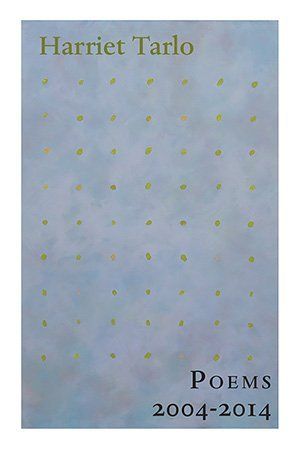
Harriet Tarlo Poems 1990-2003
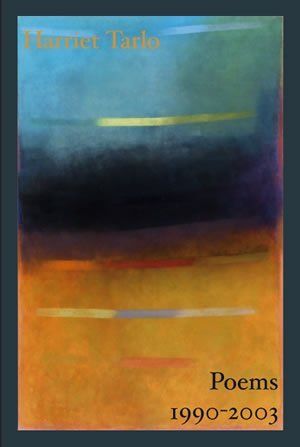
Harriet Tarlo (ed.) The Ground Aslant — An Anthology of Radical Landscape Poetry
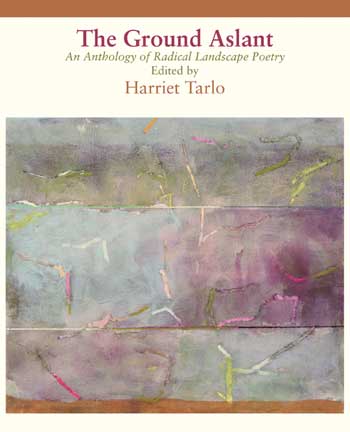
Andrew Taylor Radio Mast Horizon
ISBN 9781848612624 [Download a PDF sampler from this book here.]
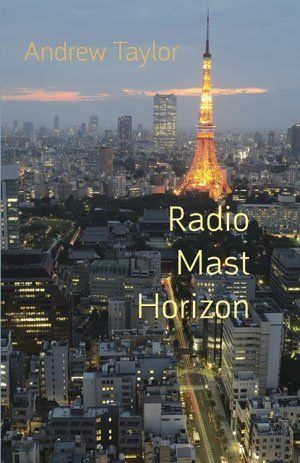
Andrew Taylor March
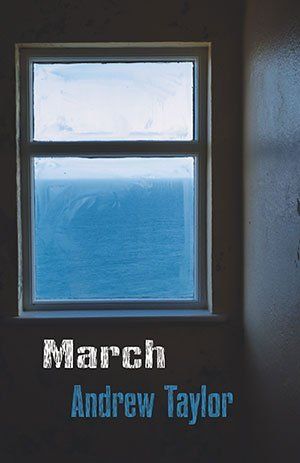
Andrew Taylor Not There — Here
Continuing the themes of travel explored in his previous Shearsman collections, Radio Mast Horizon (2013) and March (2017), Andrew Taylor takes the reader from England into pre & post-Brexit Europe, negotiating the arrival of the nightingale, European breakfasts, fast trains into Paris, and the ‘beautiful drift’ of weaving grasses. The reader is treated to the minimalist notion of moments in time alongside the traversing of travelators in Montparnasse and the intricacies of the 280-character form.
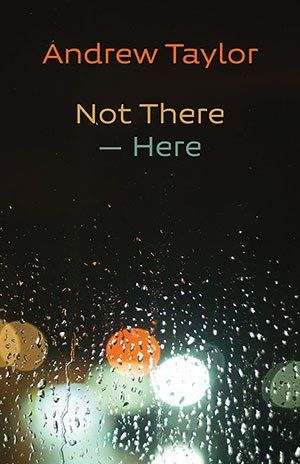
Andrew Taylor European Hymns
Published 2024. Paperback, 106pp, 8.5 x 5.5ins, £12.95 / $20
ISBN 9781848619494
European Hymns is the fourth collection by Andrew Taylor to be published by Shearsman Books. Over four sections, the book traces the calendar year throughout the seasons. Beginning with the optimism that spring brings, the book offers up the arrival of the nightingales in rural France (an ongoing interest of Taylor’s) then navigates through summer trips to cities, takes in periods of reflection amongst the closing down of a summer house, the sudden shift to Autumn and the inevitable descent into winter.
This is Taylor’s most wide-ranging collection to-date, in turns observ-ational and detailed. The poems also deal with the changes in the natural world, while others offer snapshots of moments in time, with Taylor often re-employing his minimalist practice to useful effect.
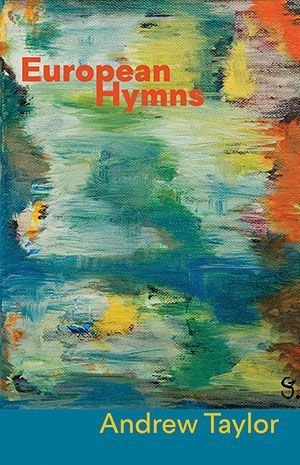
Luke Thompson Singing about melon
Shortlisted for the 2021 Michael Murphy Memorial Poetry Prize
Published 2020. Paperback, 80pp, 8 x 8ins, £10.95 / $18
ISBN 9781848617353 [Download a sample PDF from this book here .]
Singing About Melon opens with a call for silence: ‘Silenzio’. This is the self-defeating shout of the guards in the Basilica of St Francis in Assisi, where several of the poems are placed. It is a call that echoes through Luke Thompson’s first collection, playing with sense and nonsense, the sayable and the unsayable, as well as the saying that un-says.
Eels, anchorites, parrots, invertebrates, a ventriloquist’s dummy and a mechanical squirrel are all deployed in this exploration of sense and silence through themes of bodily identity, grief, the divine and other species.
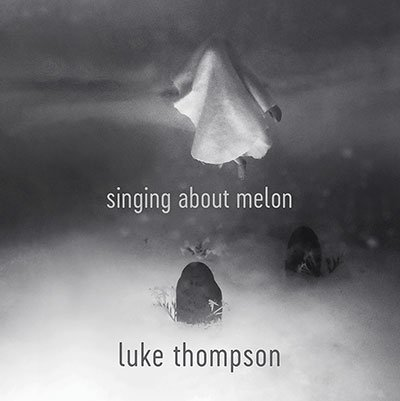
Nathan Thompson the arboretum towards the beginning
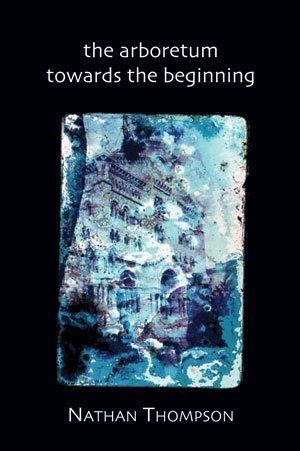
Nathan Thompson The Visitor's Guest
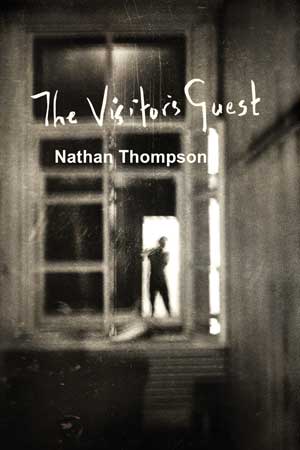
Isobel Thrilling The Language Creatures
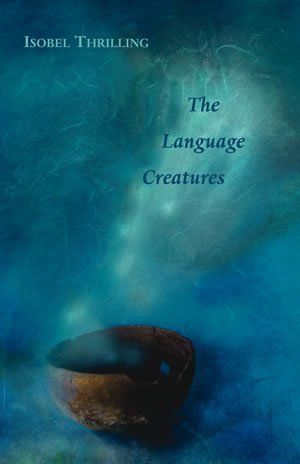
Scott Thurston Hold
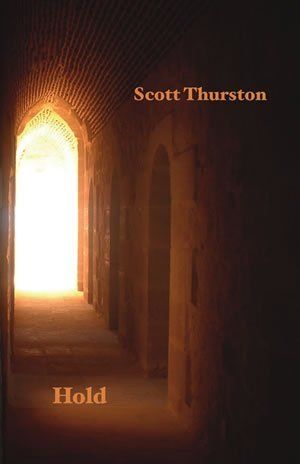
Scott Thurston Momentum
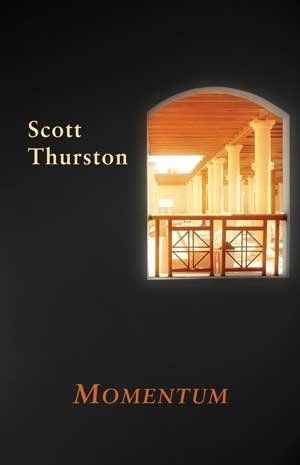
Scott Thurston Internal Rhyme
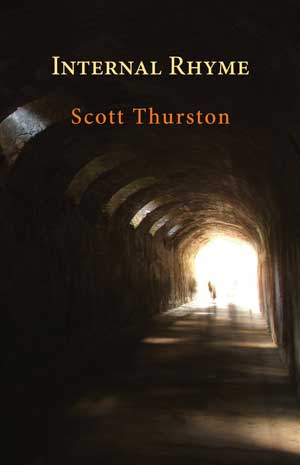
Scott Thurston Talking Poetics
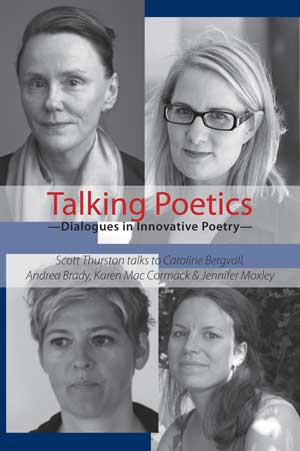
Scott Thurston Turning: Selected Poems 1995–2020
Published 2023. Paperback, 154pp, 9 x 6 ins, £12.95 / $20
ISBN 9781848618770 [Download a sample PDF from this book
here.]
“Thurston’s poems always danced, as the early writings here demonstrate, in line and spacing, long before dance as a practice became his poetic focus and his ethical metaphor for other modes of action and introspection. They always measured a world to be moved into, fine lines across fine distinctions. His texts become cues for performance, in performance, but just as important is the insistent voice of the poem as it becomes increasingly the voice of the poet: restless, relentless, carrying us with it. This is all for us: ‘in dancing your own rite you don’t/ do it for yourself.’ This is crystallized in the culminating triumph of the lockdown sonnet sequence, ‘A Hard Grief’; it reaches out from our shared resignation and hope. We’re all ‘searching/ for the shapes that shadowed the meaning/ until the flow showed up’, and Thurston is our invaluable lead.” —Robert Sheppard
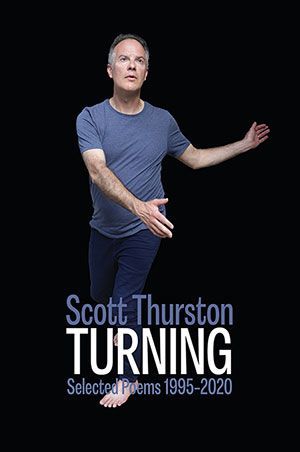
Chris Torrance Selected Early Poems
Edited by Ian Brinton, and with a Preface by Phil Maillard.
Published 2023. Paperback, 130pp, 9 x 6 ins, £12.95 / $20
ISBN 9781848619098 [Download a sample PDF from this book
here.]
One evening in 1961, in the Greyhound pub in Carshalton, Surrey, 20-year-old Chris Torrance – solicitor’s clerk with novelistic ambitions – encountered a volatile Mob of nascent artists, writers and musicians. For Torrance, this was “the most important day of my life”. Dazzled, he was soon joining in their activities: wild weekends in the country, his first scary public readings, and, from 1963, co-editing the poetry and jazz magazine Origins/Diversions. In literary terms, Torrance’s greatest influence from the group was Bill Wyatt, who introduced him to “useful short forms” like haiku, and to William Carlos Williams’ Paterson. Wyatt, later a prolific poet, translator, naturalist, and the first Zen monk ordained in Britain, remained a life-long friend and ally.
[…] In the spring of 1965 Torrance gave up his seven-year career in solicitors’ offices, and joined the local Parks Department as a labourer. As the title Green Orange Purple Red implies, he wanted a more sensual take on the world via his writing – a Keatsian ambition. About then he found a second-hand copy of The New American Poetry, and embarked on a lifelong ‘love affair’ with those writers and that energy. In particular, the enormous presence of Charles Olson, seemed to confirm that – in terms of big ambition and local detail – Torrance was on the right track with his writing.
Validation came in July 1966, with ‘The Carshalton Steam Laundry Vision’. Torrance was cutting the grass outside the Laundry, when his vocation was revealed to him: ‘I’m going to be a poet’. It wasn’t a ‘vision’; it was a powerful voice that had to be obeyed (“I accepted it completely”). As The Voice diminished into the clatter of machinery and the chatter of the laundry girls, the path ahead lay clear. —Phil Maillard
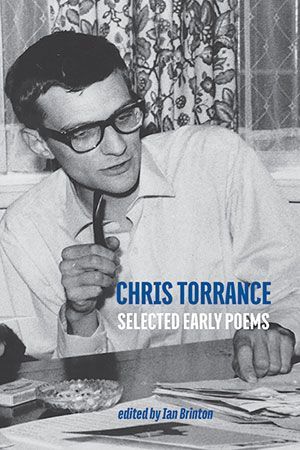
Siriol Troup Beneath the Rime
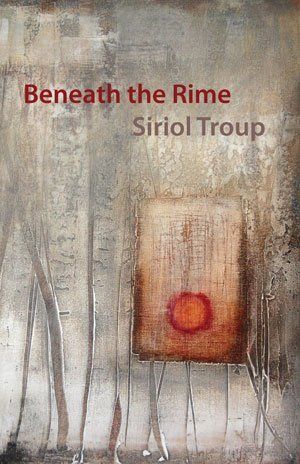
Siriol Troup No Names Have Been Changed
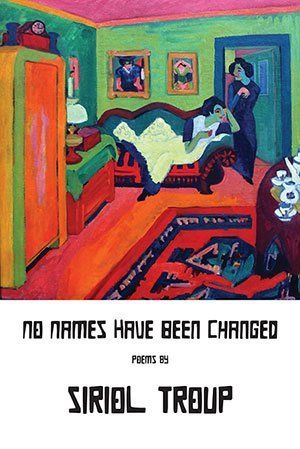
Gael Turnbull There are words… Collected Poems
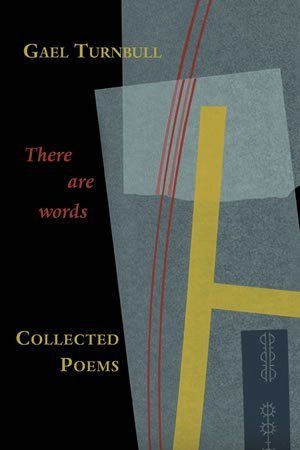
Gael Turnbull More Words — Gael Turnbull on Poets and Poetry
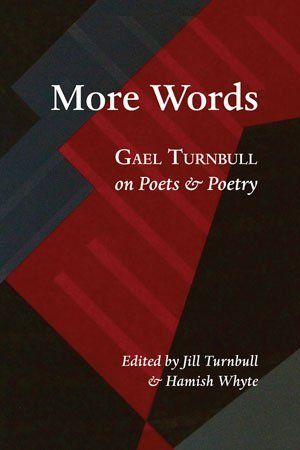
Robert Vas Dias Still • Life
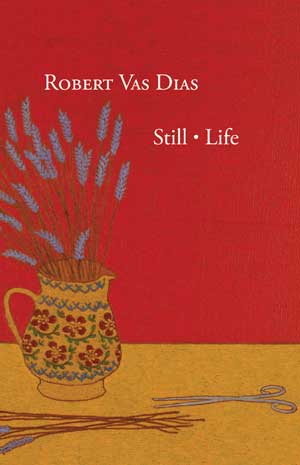
Robert Vas Dias Arrivals & Departures
Published 2014. Chapbook, 36pp, 8.5x5.5ins, £7.50 / $10.95
ISBN 9781848613652 [Download a sample PDF from this volume here .]
Robert Vas Dias, an Anglo-American born and now resident in London, has published ten collections in the UK and USA, the most recent of which are London Cityscape Sijo and other poems (Perdika, 2012), and Still · Life and Other Poems of Art and Artifice (Shearsman, 2010). This chapbook brings together a series of uncollected prose poems.
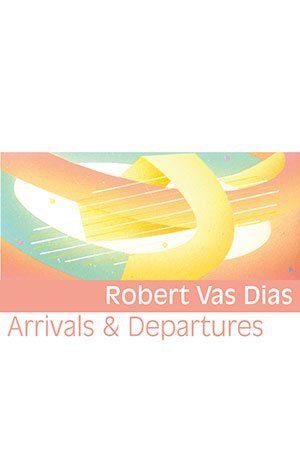
Robert Vas Dias & Julia Farrer Black Book
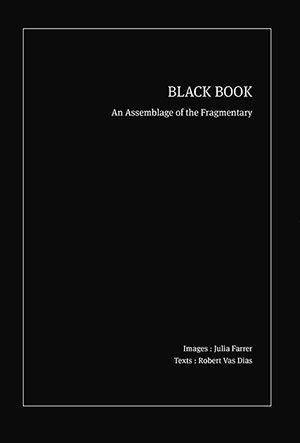
Molly Vogel Florilegium
Shortlisted for the 2021 Michael Murphy Memorial Poetry Prize
Published 2020. Paperback, 132pp, 9 x 6ins, £12.95 / $20
ISBN 9781848617025 [Download a sample PDF from this book
here.]
Molly Vogel’s first collection of poems, Florilegium is an exploration of life written in ‘the language offlowers’. The poems regard flowers as both symbols and means of communication; in a broader sense,they deem the natural world essential to our understanding of words, ourselves, and the divine. LikeColeridge’s rook in ‘This Lime-Tree Bower My Prison’, the flower is a sign that connects thosedisparately placed, both geographically and emotionally. Florilegium finds its blooms in Scotland as wellas California; in free verse as well as stricter form; in books as well as dreams; on streets and at shrinesas well as in wild gardens. Fittingly, the poems are varied and vividly colourful, inviting and surprising.They precede a long-form glossary, a meditation growing out from the poems’ words but also from theentire history of literature and thought around flowers. Though intertwined with the poems, theglossary is a collection in itself: in equal parts literary criticism, philosophical treatise, and prose poem.
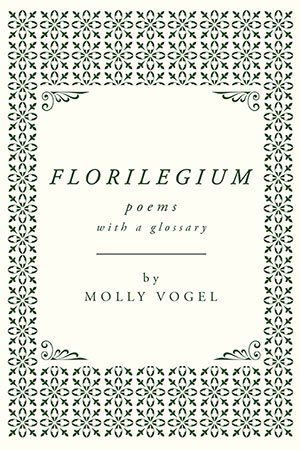
Alan Wall Alexander Pope at Twickenham
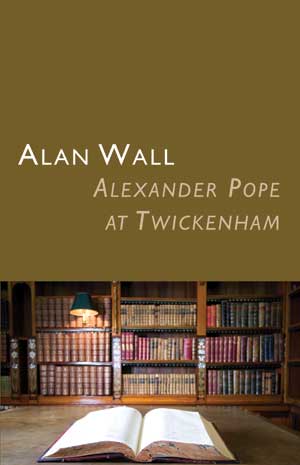
Alan Wall Gilgamesh
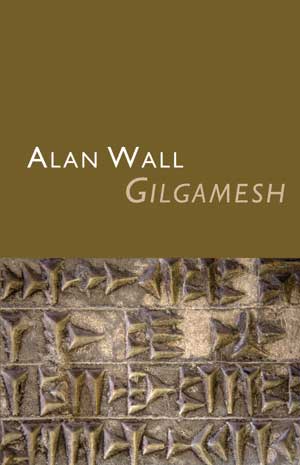
Alan Wall Doctor Placebo
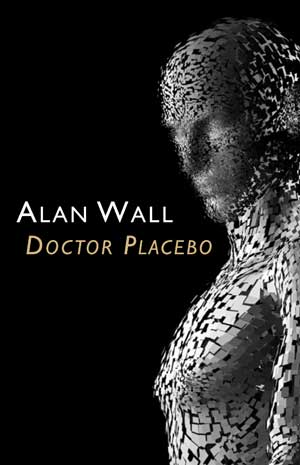
Alan Wall Raven
Published 2012. Chapbook, 30pp. 8.5x5.5ins, £7.50 / $10.95
ISBN 9781848612464 [Download a PDF sampler from this book here .]
One of 5 chapbooks published in the summer of 2012, this is a single long sequence of poems. Since collected in Endtimes (see below).
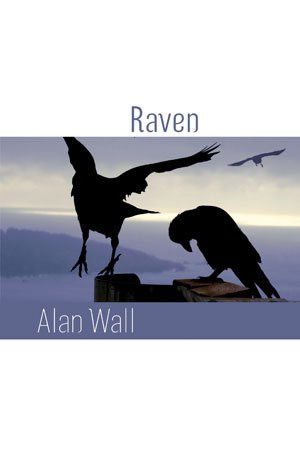
Alan Wall Endtimes
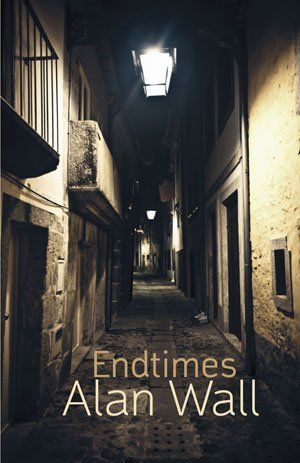
Carol Watts Mimic Pond
Shortlisted for the 2025 Laurel Prize
Published 2024. Paperback, 136pp, 8.5 x 5.5ins, £12.95 / $20
ISBN 9781848619173
Mounts Pond is a small urban pond on Blackheath, in south-east London, named for its dark earth. It is one of four ponds on the heath and the only one which comes and goes with seasonal weather. Records suggest it has been there for centuries. The pond is named after the small mound which rises like a tumulus beside it, the only rising on this levelled ground. It is a place famous for rebellions, political speeches, assemblies and sermons, with Wat Tyler and Michael An Gof of the Cornish rebellion both part of its history.
The pond swells and wanes with the season, is a barometer of the climate, and also a neighbourhood shared with the rhythms of crows and starlings, humans and plants. The pond is fragile and sometimes vandalised, occasionally rubbish strewn, a quilting point on the heath that speaks to depletion and survival, yet open to endlessly attuning, shifting, sometimes spectacular light, and mimic proposals.
Mimic Pond
is part of a practice of ongoing documenting, which is my living here in this neighbourhood. ‘Born otherwise’ in Ponge’s words, the pond wells up and vanishes in these poems, and elsewhere in notebooks, photographs and a wider making. (Carol Watts)
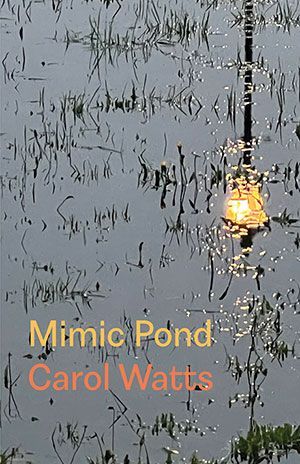
Carol Watts Kelptown
"This is poetry at the edge of the land, but also at the edge of our horizon. Kelptown is Kemptown, so we are on the south coast of England. But this is not a poetry in which borders are fixed. What we are given instead is a language of continuities, lines of contact and connection that conventional place-making keeps from view. We are standing at the shore, knowing that the waters are rising, but knowing also that our only hope is to situate ourselves in a radically different way. Carol Watts gives us a poetry which lives, and shows us how we can learn to live, alongside fellow species, which allows us to register again what we walk among. It is a poetry of loss and of an intense politics of loss: we are given ‘DeExtinction Poems’ and ‘Notes on a Burning World’. But is also a poetry that knows it must ‘make a home/ on friable shores, built from inundate truths’. These beautiful lines are from the book’s title sequence, where Watts raises the Thoreau-like question: ‘How do I live, tenant among your long fronds’. More than ever we need our poets to help shape our answers to such questions. And Carol Watts’ imaginary is a most crucial response. Written across the past decade, through what can seem like the end times, these are poems that open us to new relations with the world."
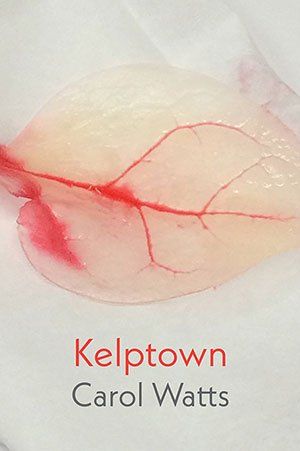
Carol Watts When Blue Light Falls
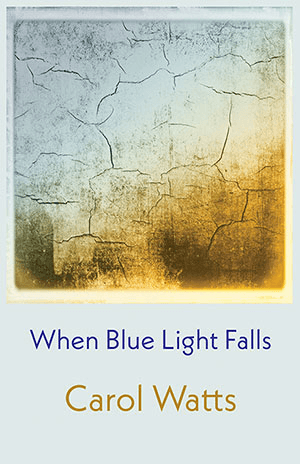
John Welch The Eastern Boroughs
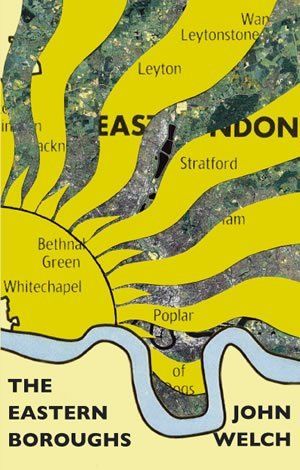
John Welch Collected Poems
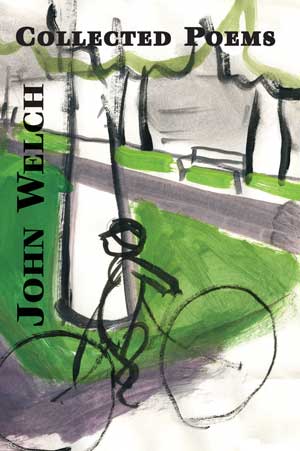
John Welch Dreaming Arrival
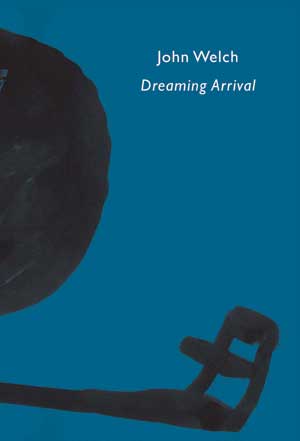
John Welch Visiting Exile
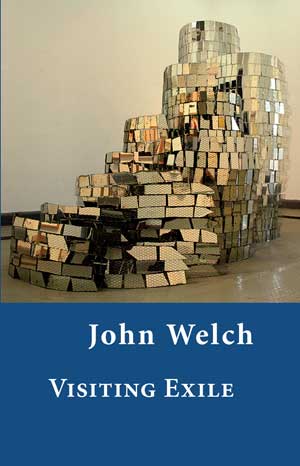
John Welch Its Halting Measure
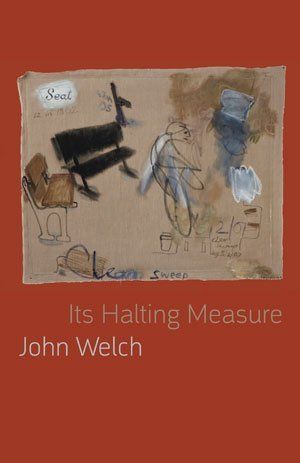
John Welch In Folly's Shade
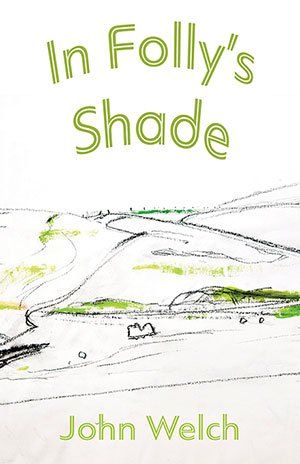
John Welch Returns
Published 2024. Paperback, 74pp, 8.5 x 5.5ins, £10.95 / $18
ISBN 9781848619326
Returns is John Welch's fourteenth collection since his first full-length volume appeared in 1984. This is writing that reflects on the strangeness of continuing to make poems, ‘Like a ball / thrown from an empty hand.’ There is the recurring sense of ‘an absence, embellished in the text’ carrying on ‘Until / It was the page that silenced him’. Along with this there is the expression of an intermittent feeling of ambivalence regarding the business of being a poet, the ‘life of it’. Other work in the collection is declarative and of a more direct address.
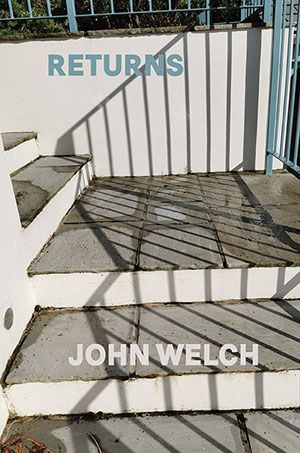
Nigel Wheale Raw Skies: New and Selected Poems
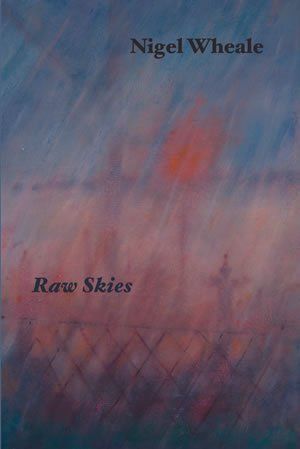
Ruth Wiggins The Lost Book of Barkynge
Published 2023. Paperback, 142pp, 9 x 6 ins, £12.95 / $20
ISBN 9781848618633 [Download a sample PDF from this book here .]
In her debut collection, Ruth Wiggins recovers the forgotten voices of the nuns, abbesses and local women of the medieval abbey at Barking. Against a backdrop of famine, plague, war and spiritual upheaval, these poems explore the strange, uncertain days of the early abbey: mysterious visions, politics, violence and sisterhood, and end with the final abbess mourning the eradication of her home as the Dissolution unhouses her, her sisters, and countless others across Europe. Barking was one of the most significant abbeys in Britain and a centre of learning for women, it offered space to the devout, the bookish, and those who simply did not fit anywhere else. These poems introduce some remarkable characters: poets, visionaries, washerwomen and queens, and range from the sacred feminine to the protofeminist. Whether one reads The Lost Book of Barkynge as a series of monologues or as a sequence evoking time and place, what emerges is an excavation of forgotten stories. Here the lost voices of the women of Barking are restored in poems that voice the power and poignancy of their lives –
So our words let them reach then flicker into brightness.
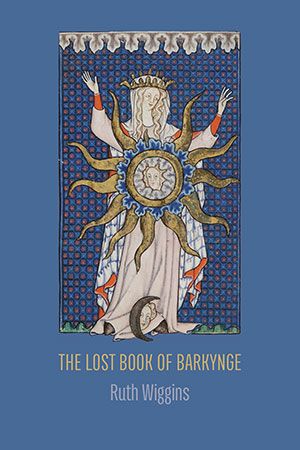
John Wilkinson Colours Nailed to the Mast
Published 2024. Paperback, 118pp, 9 x 6ins, £12.95 / $20
ISBN 9781848619432 [Download a sample PDF from this book here.]
Colours Nailed to the Mast
is not so much a memoir as an immemoir, fretting at traces, gaps and losses that start to expose absence as the productive heart of my poetic life; for with poetry I have needed to fill in the absence, not by attempted retrievals as in some of these essays, but by linguistic analogues that aspire to life, golems if you like. The unexpected absence of the final step. At best the poems emerge from my immemory into independence, even if their familial resemblance may be obvious. More so than some of what I seem to recall here, sharing the dream quality that has most intrigued me – a conviction my dreams have been annexed by another consciousness with a history and range of knowledge I cannot claim. (John Wilkinson)
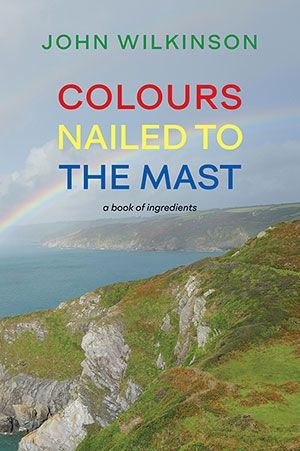
John Wilkinson Fugue State
Published 2023. Paperback, 98pp, 9 x 6 ins, £12.95 / $18
ISBN 9781848618985 [Download a sample PDF from this book here.]
"Fugue State is John Wilkinson's fifteenth book of poems, and the most fiery. In it, the world is thicker than ever, crowded with all sorts of things, from futures to the exhumed bodies of 80 girls. His muse is a fly, try to catch it. His sentences zigzag. His unique fashion of figuration risks cutting ties with 'verisimilitude.' Opposing everything that blocks, hardens, locks, and pursues a single, choke-hold course, he takes his stand on the edge of chaos, not instituted law. Thus would he champion the precept of refreshment, not least the natural cycle of living things. More, he curses 'he misbegetting Gods [who] fuck in beach-huts of a cement Lethe.' Data-streams, a "horizon of ones and zeros," self-driving cars, drones, crypto-currency, robots – these are for him aspects of the concretization of modern culture. Fighting its sway, he is as steely as he is mercurial. Force is good if it's on the side of 'the vital artery.' In the last decade Wilkinson has become a master of the longish poem — here, for instance, 'East Lake' and 'Xipe Totec.' Of poets now writing in English, he is the freest and most elusive-on-principle, the most capable of pulling out a language blade and using it." —Calvin Bedient
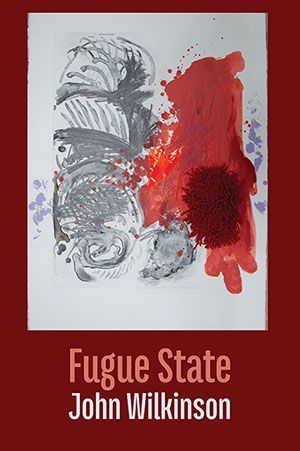
JL Williams Condition of Fire
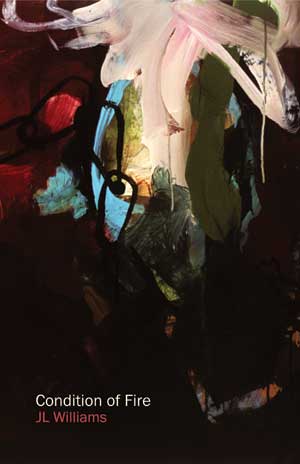
JL Williams Locust and Marlin
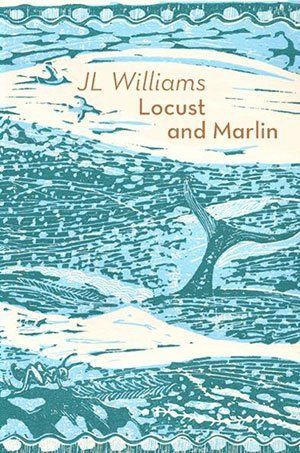
JL Williams After Economy
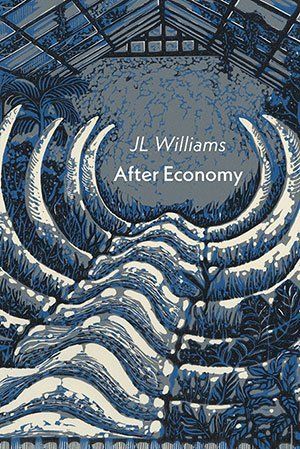
JL Williams Origin
This is the story of a baby coming into the world, and of her first year in that world altered beyond recognition by a virus born into our lives at nearly the same time. It is a song of breath, and of light. It is a collection of love poems, and a cry flung into the universe echoing the cry of all babies, a cry of loss and of nearly unbearable love. It is a book not just for pregnant women, or new mums and dads, but for all people who have entered through that small crack into the light of this life, and for all who have parents and have grappled with the joys and challenges of those most intimate of relationships. It is a song of light, and of breath. It is a story of where we come from.
Duncan Wu Origin Myths
Published 2024. Paperback, 96pp, 8.5 x 5.5ins, £10.95 / $18
ISBN 9781848619395
In 2011 Duncan Wu moved into the forests of northern Virginia in a place largely unchanged since the Civil War. Here, he learnt, indigenous people had once lived in considerable numbers but at some point after the War all had disappeared. Contemporary documents held in local archives provided no explanation although they confirmed all indigenous settlements had gone from the area by 1778. He would learn a good deal more by walking through the wilds of northern Virginia with his dog Dakota, who would guide him to the places that witnessed the end of Powhatan and his people.
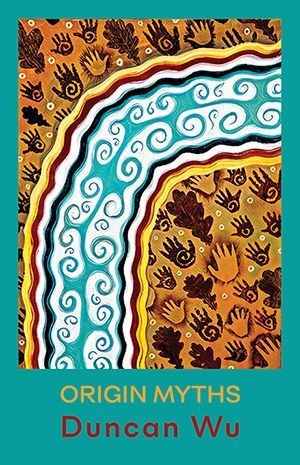
Sir Thomas Wyatt Selected Poems
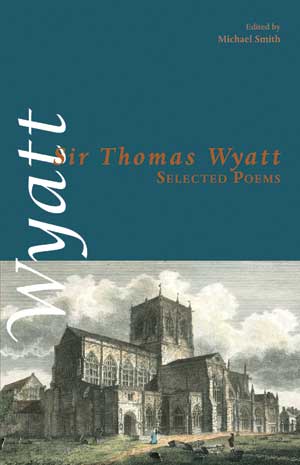
Michael Zand Lion — the iran poems
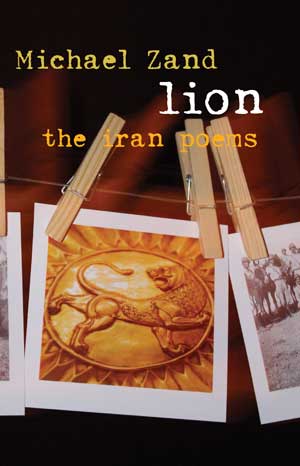
Michael Zand The Wire & other poems
Chapbook, 32pp, 8.5x5.5ins, £7.50 / $10.95
ISBN 9781848612495 [Download a PDF sampler from this book here .]
One of 5 chapbooks published in the summer of 2012, this shows the further development in Michael Zand's work since his debut volume, Lion (2010).
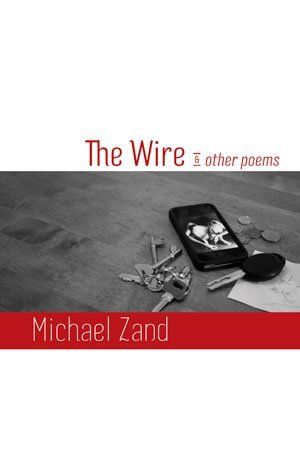
Michael Zand The Messier Objects
